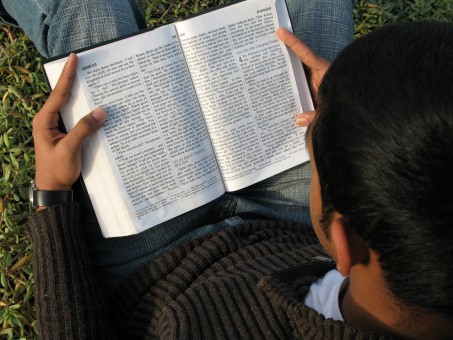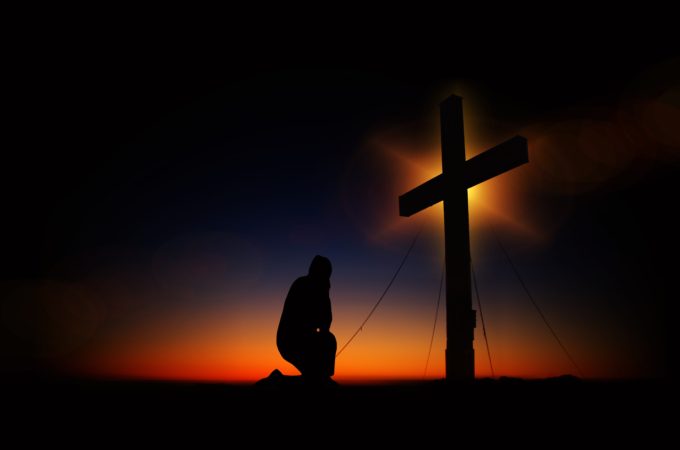In the previous post in this series we wrote about self-government (self-control) as an aspect of religion. Christianity is the only religion that provides sufficient motivation (God’s grace in Christ’s death) and empowerment (the ministry of the Holy Spirit in the life of the believer) to enable true self-government.
Our friend Dr. Elizabeth Youmans, founder and director of Chrysalis International, writes about the necessary connection between liberty and self-government, a connection found in Christianity.
The Christian principle of self-government is God ruling internally from the heart of the believer. In order to have true liberty, man must willingly (voluntarily) be governed internally by the Spirit and Word of God rather than by external forces. Government is first internal (causative), then extends outwardly (effect).
 Freedom flows out, from the internal to the external. the more internal self-government a person and nation possesses, the more freedom they enjoy. Greater self-government allows for smaller external government. The opposite is also true: citizens who do not govern themselves well invite more external government control.
Freedom flows out, from the internal to the external. the more internal self-government a person and nation possesses, the more freedom they enjoy. Greater self-government allows for smaller external government. The opposite is also true: citizens who do not govern themselves well invite more external government control.
Vishal Mangalwadi, in his book Truth and Transformation, on his first visit to Holland, was taken to a dairy where a couple of surprises awaited him.
I had never seen such a dairy! It had a hundred cows, there were no staff on site, and it seemed amazingly clean and orderly. In India we had a small dairy of our own, but our dairy had two workers and it was filthy and smelly.
Besides the mechanized milking, a bigger surprise was the honor system used to pay for milk.
We walked into the milk room, and no one was there to sell the milk. I expected Jan to ring a bell, but instead he just opened the tap, put his jug under it, and filled the jug.
The Word of God implanted
His host paid for the milk, making change from the open money bowl on the windowsill, and the transaction was done! Vishal observed that in his  native India you would take the milk and steal the basket of money.
native India you would take the milk and steal the basket of money.
His answer to why didn’t people do this in Holland: they were governed internally by the Word of God, which specifically says, “you shall not steal.” India and Egypt didn’t have this legacy. They may choose not to steal out of fear of being caught and prosecuted, or because of the internal “law on the heart” (Rom. 2:15) or conscience. But without the generations of biblical instruction in homes, schools and pulpits about God, His law, future judgment, and grace, the conscience goes only so far.
Vishal observed that such an honor system could only work in a culture of trust. In a different culture, the milk would be diluted—requiring inspectors, and the money bowl would be pilfered—requiring employees. Hiring employees and paying inspectors would increase the price of milk for everyone.
The soil that produces self-government
True internal self-government requires a particular kind of soil in a society, one rich in the proper nutrients.
- God is real. He exists. Gen. 1:1; Deu. 6:4
- He is holy, just, and righteous. Gen. 18:25; Duet. 32:4
- His character is the eternal, objective standard for morality (what is good, just, etc.) for all peoples and all times. Isa. 6:1-7; 1 Pet. 1:15-16
- God communicates this standard to us, so we can know it.
- Internally (the law written on the heart, and our conscience which convicts us of wrongdoing). All people have this. Rom. 2:12-16
- Externally. God’s revelation of the law, particularly the Ten Commandments. Exo. 20; Rom. 1:19-20
- God is to be revered. An appropriate fear of God is rooted in the belief that he will judge us all on the basis of the law. Every deed will be exposed. All acts of lawlessness will be punished. 2 Chr 26:5; Rom. 2:5-6; Rev. 20:11.
- Profound gratitude that God, in Christ, fulfilled the requirements of the law on our behalf, died to pay the penalty for our lawlessness, and exchanged our moral guilt for his moral innocence. Eph. 1:3-14; 2 Cor. 5:14-21
- The infilling of the Holy Spirit for all who believe in Jesus Christ, empowering them to live in conformity to God’s moral standard. Eph. 5:18-21; Gal. 5:16-26
- A deep desire to please God, who said “blessed are those who hunger and thirst for righteousness.” Rom. 12:1-2; Mat. 5:6
Several religions have some of these nutrients; only Christianity has them all. The fewer you have, the less likely you will achieve self-governance. If  you believe all these things, you have the greatest likelihood this essential attribute in God’s world.
you believe all these things, you have the greatest likelihood this essential attribute in God’s world.
Virtues need to be cultivated
In the absence of these virtues, why not steal the milk, the cows and the money? Why not cheat your boss, or jump over the subway turnstile? As more people do this, the society breaks down.
The role of the church in society is to give voice to these truths, and nurture a people who learn to live this way more and more. Such people function as preserving salt and light in society. These virtues need to be nurtured and cultivated over many generations, as they were in Holland and America until recently.
Today, in the US, many influential churches are downplaying the law, notwithstanding Jesus’ position on the matter.
Do not think that I have come to abolish the Law or the Prophets; I have not come to abolish them but to fulfill them. For truly I tell you, until heaven and earth disappear, not the smallest letter, not the least stroke of a pen, will by any means disappear from the Law until everything is accomplished. Therefore anyone who sets aside one of the least of these commands and teaches others accordingly will be called least in the kingdom of heaven, but whoever practices and teaches these commands will be called great in the kingdom of heaven
Prominent church leaders are pushing Christians to ignore the Old Testament. Prominent Christians are preaching cheap grace, forgiveness without repentance, and using it as an excuse to go on sinning “because God will forgive me.” These are worrisome trends that need to be reversed. The church has an essential role to play in this!
- Scott Allen






